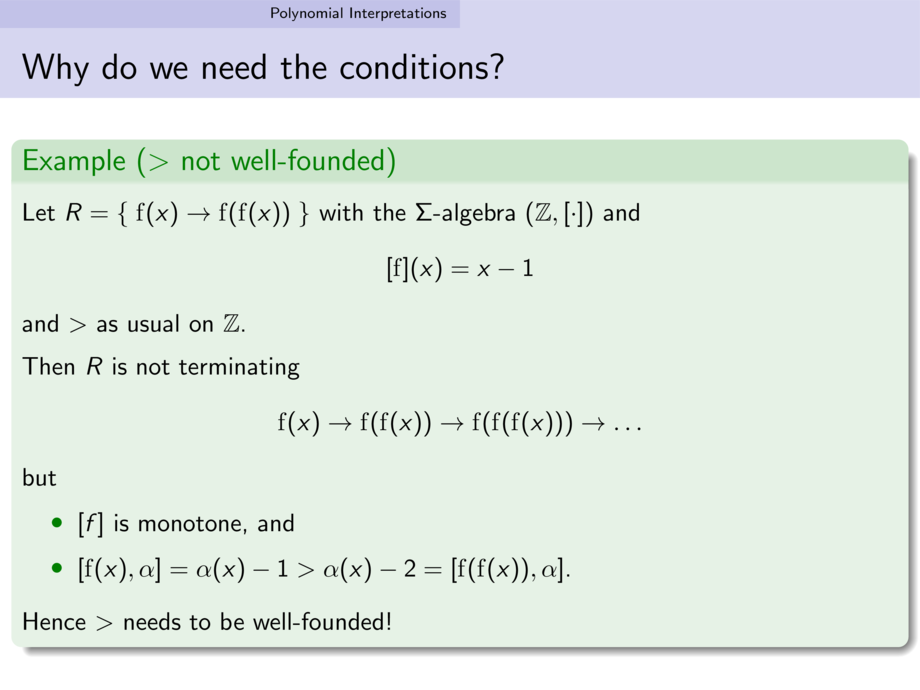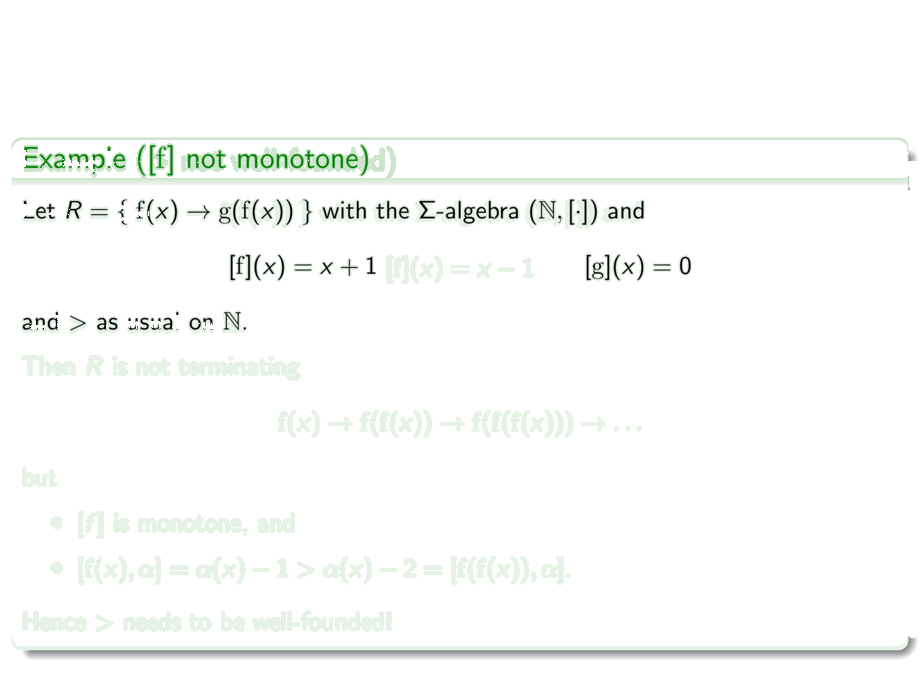



































































































157/365
\begin{frame}
\frametitle{Why do we need the conditions?}
\begin{example}[$\interpret{{\rm f}}$ not monotone]
\smallskip
Let $R = \{\; {\rm f}(x) \to {\rm g}({\rm f}(x)) \;\}$ with the $\Sigma$-algebra $(\nat,\interpret{\cdot})$ and
\begin{align*}
\interpret{{\rm f}}(x) &= x + 1 &
\interpret{{\rm g}}(x) &= 0
\end{align*}
and $>$ as usual on $\nat$.\\[.5em]
\pause
Then $R$ is not terminating
$${\rm f}(x) \to {\rm g}({\rm f}(x)) \to {\rm g}({\rm g}({\rm f}(x))) \to \ldots$$
\pause
but
\begin{itemize}
\item $>$ is well-founded, and
\item $\interpret{{\rm f}(x),\alpha} = \alpha(x)+1 > 0 = \interpret{{\rm g}({\rm f}(x)),\alpha}$.
\end{itemize}
\smallskip
\pause
Hence the functions $\interpret{f}$ need to be monotone!
\smallskip
\end{example}
\end{frame}

